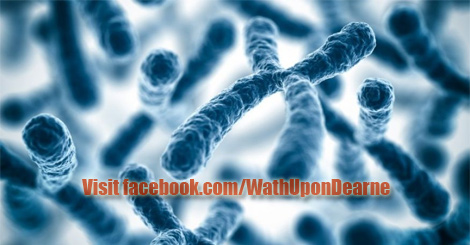News: Latest – distributed around Yorkshire August 16, 2016 01:13:42 PM
On Monday 22 August Rotherham Council will be working with Don Catchment Rivers Trust on a community clean up.
A team of researchers from Singapore and the United Kingdom have discovered an enzyme that regulates sperm and egg cell production, which may be linked to Down Syndrome, Patau Syndrome, and other chromosomal aberrations.
Humans have 23 pairs of chromosomes in every cell in their bodies, except for their reproductive cells or gamete cells (sperm or egg), which contain 23 chromosomes. The reason why chromosomes come in pairs is that one pair comes from the egg, and the other from the sperm. So when gametes fuse with each other, they end up as a single cell having two copies of each chromosome.
Gamete cells are produced by a process called meiosis — a type of cell division with two rounds of nuclear division, to make sure that the number of chromosomes in the parent cell is halved. Sometimes, though, errors occur during cell division, which may result to offsprings having abnormal number of chromosomes — a phenomenon called aneuploidy.
Aneuploidy causes Down Syndrome — the most common genetic condition, Patau Syndrome, and other genetic disorders. It is also the leading cause of miscarriage.
The research team, led by Dr. Prakash Arumugam from the National University of Singapore, noted how the process of meiosis can affect chromosomal irregularities: “Understanding how meiosis is regulated is of great importance to understanding the causes of aneuploidy and genetic disorders in human,” said Dr Gary Kerr and the team, writing in the journal Scientific Reports.
- College helps to transform lives across South Yorkshire
- Rotherham man remanded for burglary
- NHS Trust looks to Doncaster school for future staff
- Aston-cum-Aughton Leisure Centre celebrates 10th birthday
- Man charged with string of burglaries in Doncaster
- Thornhill Place 1991
- Police will clamp down on knife carriers
- Man seriously injured in Thurnscoe dies in hospital
- Manvers Main in South Yorkshire
- Plans to turn Wickersley bank into restaurant passed
- Bonfire Night passes without major incident
- Fewer takeaways for Barnsley town centre?
- West Melton In South Yorkshire
- Pumpkin Festival and Wizardry School 2018 at Cannon Hall Farm
- Make this summer a safe one for your children online
- Inspirational seven-year-old from Wombwell
- The mathematics behind ceramic designs
- Rogue landlords pay the penalty
- Cutting food waste
- Sheffield man sentenced for assault
- Pensioner admits killing husband in Sheffield last year
- Yorkshire Wildlife Park’s giraffe’s star in awareness campaign
- Dearne and Dove Canal Wath
- New rules for landlords come into force on Monday – RMBC reminder
- E-fit released in connection to Doncaster assault
- HGV crashes into house in Barnsley
- Modern day slavery, human trafficking and the signs to look out for
- CCTV image released following Sheffield robbery
- Penalty Charge Notices could end with clamping
- Doncaster prisoners jail time extended
- Conisborough robbery
- E-fit released following attempted robbery in Walkley
- GB Bike display crash boy a British champion
- Free bus travel helps thousands of young people take part in community projects
- No suspicious circumstances in Barnsley man’s death
- A man has been arrested following an assault in Barnsley.
- Blue badge abuse prosecution
- Story of the Oaks Colliery Disaster
- E-fit released in connection with Sheffield robbery and burglary
- Tata Steel fined after worker fell into open pit – £450,000 with £32,099 costs.
